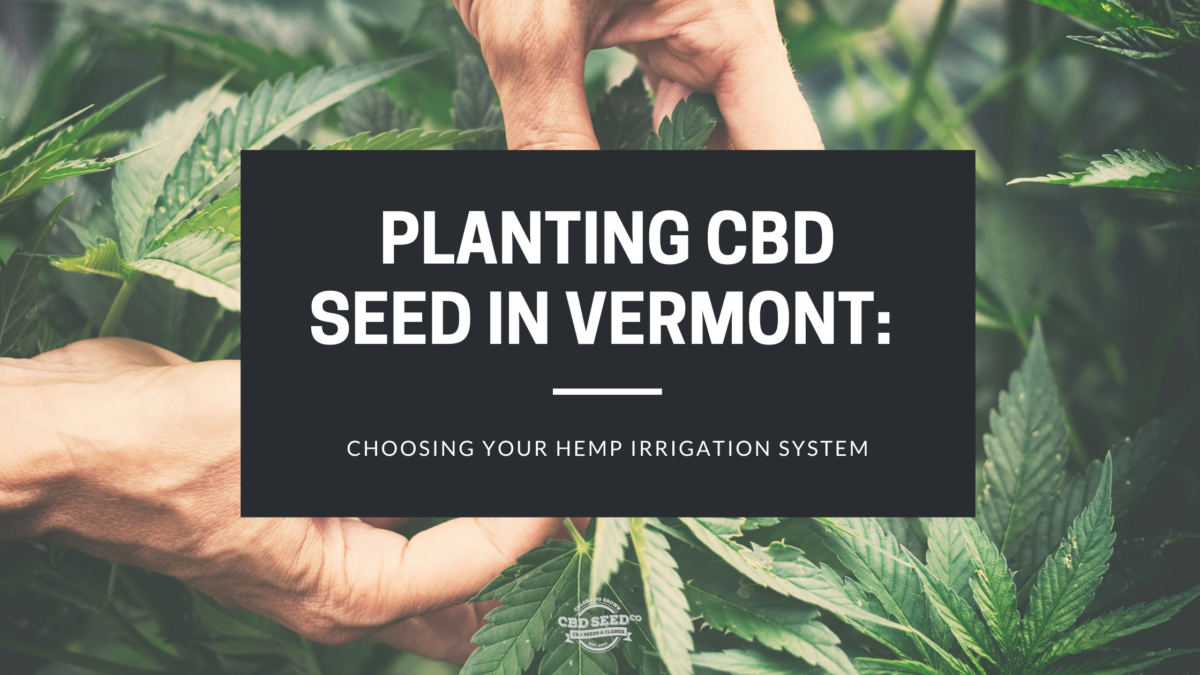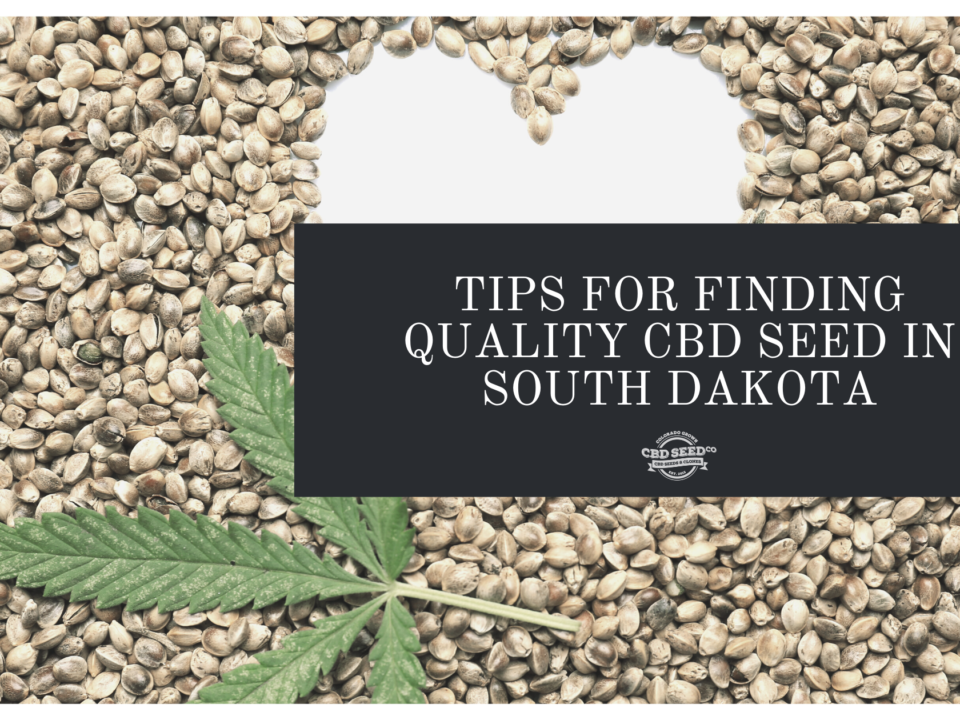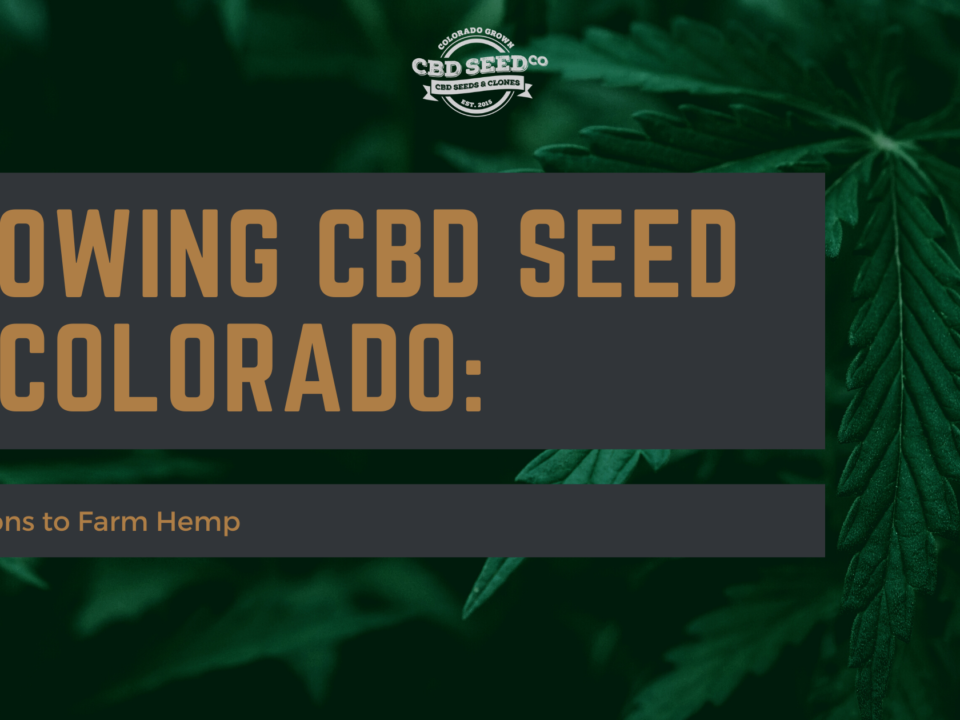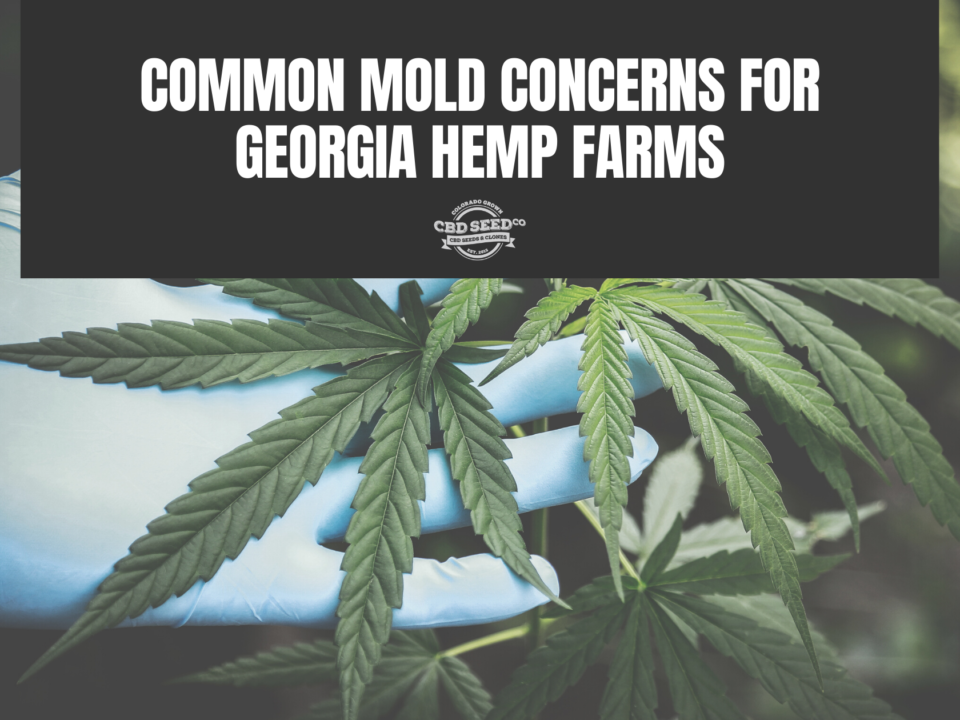Planting CBD Seed In Vermont: Choosing Your Hemp Irrigation System

Planting CBD Seed In Missouri: Hemp Compliance Testing & Requirements
October 22, 2020
Planting CBD Seed In Nevada: How to Choose the Right Hemp Strain
October 23, 2020While hemp is considered to be one of the more forgiving crops to work with, can thrive in various environments, and even survive in sub-poor soil, one of the important parts of the cultivation process that can’t be overlooked is the irrigation system. Now that farmers can apply for licenses in Vermont for hemp cultivation, those interested in joining the industry should consider developing a proper business plan and strategy. As a part of your farm’s business strategy, understanding what irrigation system works best for your farm and the costs tied to that investment are key. For farmers planning on planting CBD seed in Vermont, it’s crucial to find the right irrigation system so that you can maximize the growth potential of all of your crops. Let’s take a closer look at irrigation system options for your farm:
CBD Hemp Irrigation Requirements
Vermont is considered about average when it comes to rainfall when compared to the rest of the US, which is ideal for hemp since it doesn’t require a lot of water like cotton, almonds, or other crops. Hemp thrives in moist soil that’s been properly drained and thoroughly aerated. Having a good understanding of your specific strain’s watering needs throughout its different life cycles can help you avoid under-watering and over-watering. Under-watering or over-watering can both stress your plants and impact the CBD content and quality of your hemp. Watering requirements also differ based on irrigation systems.
Common Hemp Irrigation Systems for Planting CBD Seed In Vermont
Here are the three most common irrigation systems for farmers planting CBD seed in Vermont:
- Flood irrigation: As one of the oldest irrigation methods, this can be a low-cost option if you have cheap or free water access. With this irrigation system, farmers usually pour or pump their water onto the fields where it flows naturally around the crops. One of the benefits provided by this system is that it’s a very simple, cost-effective option to create. There are significant drawbacks to this irrigation system considering it can facilitate over-watering and is not ideal for areas with high-cost water access. Over-watering can make your plants more susceptible to disease.
- Pivot irrigation: For farmers that already have a pivot irrigation system, this can offer a viable option if you’re not interested in investing in a new one. With this irrigation option, farmers use a sprinkler boom or pipe which pulls water from a water source and delivers it to your crop through a row of hanging sprinklers. The automated sprinkler pipe rotates and delivers water throughout your field and is supported by corresponding towers that keep it in place overhead. Pivot irrigation offers the benefit of utilizing significantly less water and can be customized to be automated. The disadvantage of this system is that since water is delivered from overhead, some of the water doesn’t make it to the roots. With wet leaves, your hemp crops may be more susceptible to certain diseases.
- Drip irrigation: Drip irrigation is the most effective method for hemp and is the most popular among farmers in the area. Since drip irrigation delivers water straight to the roots, this irrigation system is also known as micro-irrigation. There are many methods used for this system usually involving a tape, tube, or flexible pipe which is installed alongside a row of plants that delivers low-pressure water through pre-designed holes placed throughout the base of crops. Drip irrigation can be installed below ground or above, providing numerous benefits, especially when utilized alongside plasticulture. This irrigation system is ideal for hemp because it’s very water-efficient, keeps foliage dry, reduces the risk of certain diseases, helps minimize weed growth, and can be automated for better logistical flexibility.
Choosing the Right Irrigation System for Vermont CBD Hemp Farms
Finding the right advice for choosing your irrigation system can be difficult since answers should be personalized based on the irrigation system, soil type, and climate. Here are the factors you need to consider before planting CBD seed:
- Water source: Understanding your water source can help you develop the right irrigation system and where to locate it.
- Water amount: Based on the climate and what strains you’re growing, you can plan on how much water you’ll need. Make sure you have an adequate amount of water so that you can meet your crop’s needs during peak growing season.
- Water filtration: Water filtration is crucial even if you’re sourcing it from a local water supply, well, or natural water source. You’ll need a proper size filter in order to ensure full functionality.
- Water pressure: You’ll need the right water pressure in order to deliver the right amount of water to your hemp. Ideal water pressure depends on the irrigation system– always consult with your irrigation manufacturer or hire an irrigation expert if you need additional guidance.
- Irrigation and fertilization: Hemp farmers usually deliver liquid fertilizer via their irrigation system. Make sure to test your soil and plants to understand your fertilization needs.
Work with Vermont’s Trusted CBD Seed Supplier
CBD Seed Co. is honored to be the trusted CBD seed supplier serving the state of Vermont. We’re always available to speak to you about your irrigation needs or provide recommendations for local agronomists. Work with our industry-leading hemp farmers for the support and high-quality genetics you need. For more information regarding irrigation systems for your hemp farm, please contact us!





